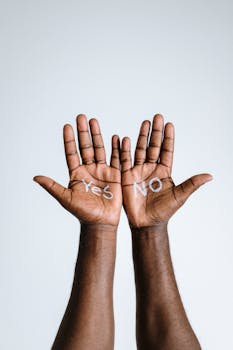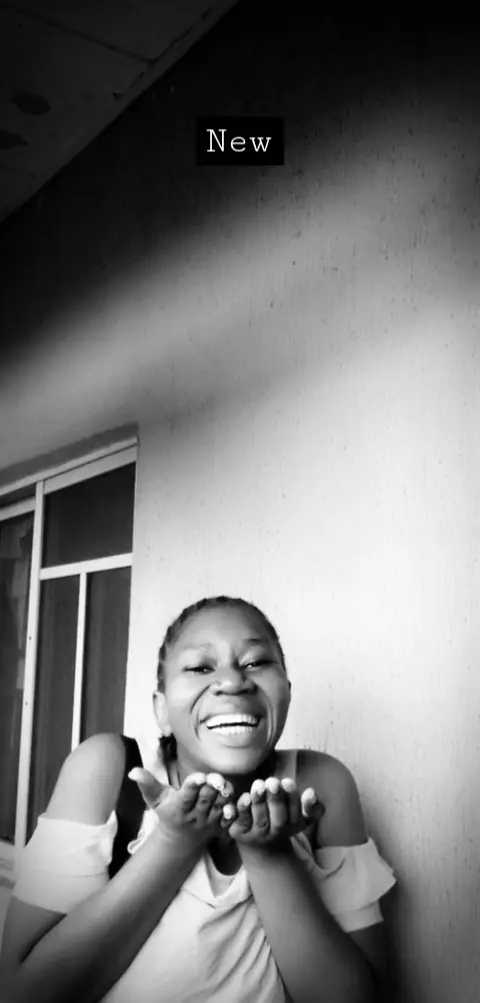MORAL DILEMMA
She was lying on the hospital bed and her bloodshot eyes were gazing to nothingness. I stood by the door, combing the area for any prying eyes. The hallway was completely empty, and it was the perfect time to strike. I hurried into her room, closing the door behind me without a sound. I brought out a syringe, pierced her vein, and watched as the injection flowed into her vein from the syringe. Immediately, the electrocardiogram (ECG) showed a flatline.
She was dead, and I was her ki!!er. Yes, I admit to the crime— I ki!!ed a patient, I was meant to save.
She was dead, and I was her ki!!er. Yes, I admit to the crime— I ki!!ed a patient, I was meant to save.
I know what you must be thinking. That I'm a terrible person and my alleged patient deserved better than having her life cut short. You might think that I don't deserve to be called a doctor, and that I should be behind bars, paying for my crime for the rest of my life.
And the truth is, I really don't care about what you think of me. But before you jump to conclusions or try to call the law force on me, listen to my side of the story. Not that I care if you do or not, either.
And the truth is, I really don't care about what you think of me. But before you jump to conclusions or try to call the law force on me, listen to my side of the story. Not that I care if you do or not, either.
My name is Dr. Cynthia Ekwusi, a thirty-two-year-old middle-class woman who loves her profession. I still remember the day I was sworn into the neurological institute of Nigeria. It was a dream come true; I felt as though the world was in the palm of my hand, ready to do my bidding. It hadn't been an easy pathway, but making it to that moment was the peak of happiness and accomplishment.
My brother, Ekene, was the best supporting system I had after the demise of our mother, may her soul rest in peace.
My brother, Ekene, was the best supporting system I had after the demise of our mother, may her soul rest in peace.
He became a father, a mother, and a brother to me—the only family I had left. These beautiful moments in my life were his too. I could see the wild grin he wore on his face each time I stared at him, and when I was finally called up to the podium for the collection of my certificate and to render a speech, he stood up, cheering as loud as if his life depended on it.
In that moment, I knew that he was as proud of me as I was of myself.
Watching him from the podium, displaying his indelicate behavior, I saw the movement of his lips as he exclaimed, "That's my lovely sister! Nwannem m!"
In that moment, I knew that he was as proud of me as I was of myself.
Watching him from the podium, displaying his indelicate behavior, I saw the movement of his lips as he exclaimed, "That's my lovely sister! Nwannem m!"
As the top graduate of my alma mater, I was quickly offered a position as a junior staff member with a generous salary. Two years into my job, I founded Cece & Co healthcare, a practice that was thriving despite its infancy stage. The feedback from patients was positive, and life couldn't have been any better.
However, my brother persistently thought it was high time I considered settling down. He believed it was the next logical step, despite my lack of a relationship at the time.
Moving on from the story of my brother and my achievement, I will tell you of the experience that changed everything.
However, my brother persistently thought it was high time I considered settling down. He believed it was the next logical step, despite my lack of a relationship at the time.
Moving on from the story of my brother and my achievement, I will tell you of the experience that changed everything.
It was my day off, and I was preparing to go grocery shopping to refill my refrigerator with homemade food. After a few hours of rest, I got ready to step out. I almost had all I needed, made my payment at the cashier counter, and began to reverse my car out of the parking garage.
Suddenly, I heard a commotion—people nearby seemed to be in distress. I decided to stop my car and investigate what the uproar was about.
Suddenly, I heard a commotion—people nearby seemed to be in distress. I decided to stop my car and investigate what the uproar was about.
As I approached, the voices faded into hushed whispers.
"She looks dead," one voice said, confirming my worst fears. "A hit and run," another confirmed. My heart sank as I realized that this was not just a commotion—it was a tragedy.
Without hesitation, I called out, "I'm a doctor!" The crowd parted, giving me room to reach the motionless figure on the ground.
As I knelt beside her, I checked her vital signs, and a breath of relief escaped me. She was still alive, still breathing. As I applied CPR and made urgent calls for medical assistance, I prayed and hoped that she wouldn't die under my watch.
"She looks dead," one voice said, confirming my worst fears. "A hit and run," another confirmed. My heart sank as I realized that this was not just a commotion—it was a tragedy.
Without hesitation, I called out, "I'm a doctor!" The crowd parted, giving me room to reach the motionless figure on the ground.
As I knelt beside her, I checked her vital signs, and a breath of relief escaped me. She was still alive, still breathing. As I applied CPR and made urgent calls for medical assistance, I prayed and hoped that she wouldn't die under my watch.

Yet, I was still the one that took the chance she had to live.
As the days passed and she remained in my hospital without any contact from her family, I felt no reluctance to help her. I took care of all her expenses, feeling that it was the least I could do for this poor lady. After all, I wished someone had done the same for my late mother, she would have been here with Ekene and I.
As the days passed and she remained in my hospital without any contact from her family, I felt no reluctance to help her. I took care of all her expenses, feeling that it was the least I could do for this poor lady. After all, I wished someone had done the same for my late mother, she would have been here with Ekene and I.
After a series of tests and careful monitoring, we diagnosed her with Locked-in Syndrome (LIS), a rare neurological condition where a person is completely paralyzed but remains conscious.
It was a huge blow for her and for me as her doctor.
As I observed her lost in her blank gaze and tear-filled eyes, I could imagine the grief she was experiencing. It was only later, when the police informed us that she had received the news of her mother's death from cancer just before her accident, that the full weight of her loss became clear.
It was a huge blow for her and for me as her doctor.
As I observed her lost in her blank gaze and tear-filled eyes, I could imagine the grief she was experiencing. It was only later, when the police informed us that she had received the news of her mother's death from cancer just before her accident, that the full weight of her loss became clear.
I knew the pain of losing a mother, and it was painful to witness her suffering. For months, she showed no signs of improvement. Then one night, while working the night shift, I went to check on her. As I checked her vitals, she moved her fingers slightly.
Stunned, I gently held her hand. She seemed to be trying to say something, and I leaned in closer, my ear near her mouth.
"End this life...for me," she whispered. I felt her words like a physical blow, knocking the wind out of me.
I released her hand and stumbled out of the room, unable to comprehend what I had heard. For days, I didn't visit her, instead peeking in through the window to watch her.
I knew that it was her wish, her right to choose. And yet, I struggled to make that final decision.
Stunned, I gently held her hand. She seemed to be trying to say something, and I leaned in closer, my ear near her mouth.
"End this life...for me," she whispered. I felt her words like a physical blow, knocking the wind out of me.
I released her hand and stumbled out of the room, unable to comprehend what I had heard. For days, I didn't visit her, instead peeking in through the window to watch her.
I knew that it was her wish, her right to choose. And yet, I struggled to make that final decision.
Finally, I made up my mind. With tears streaming down my face, I approached her bedside, the euthanasia syringe in hand. As I drew near, she saw me and gave me a weak but genuine smile.
I hesitated, the weight of what I was about to do overwhelming me. But then I thought of the suffering she had endured and would continue to endure, the loss of her mother, the paralysis of her body.
I knew at that moment that what I was doing was the only mercy left to give her.
I hesitated, the weight of what I was about to do overwhelming me. But then I thought of the suffering she had endured and would continue to endure, the loss of her mother, the paralysis of her body.
I knew at that moment that what I was doing was the only mercy left to give her.
With a trembling hand, I inserted the needle and injected the contents into her vein.
As the drug flowed into her bloodstream, her eyes closed and her breathing slowed until it finally ceased altogether.
I held her hand, tears blurring my vision, as I said a silent goodbye. It was only then that I realized the weight of what I had done.
I had taken a life, but it was a life that had been ravaged by loss and pain. I had granted her a mercy that no one else could.
As the drug flowed into her bloodstream, her eyes closed and her breathing slowed until it finally ceased altogether.
I held her hand, tears blurring my vision, as I said a silent goodbye. It was only then that I realized the weight of what I had done.
I had taken a life, but it was a life that had been ravaged by loss and pain. I had granted her a mercy that no one else could.
As the weeks passed, I found myself consumed by guilt and sadness. I knew that I had done what she had asked, what she wanted. But I couldn't help but wonder if I had made the right decision.

